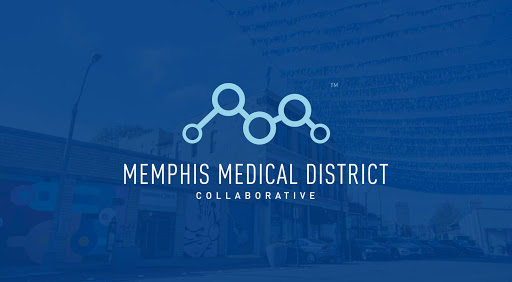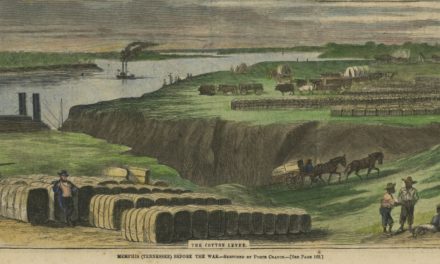Thumbnail: Memphis Medical District Collaborative steps into the national spotlight for its transformative work in the Edge, a long-neglected neighborhood becoming an urban hot spot and national best practice. The Brookings Institution publishes an article by two Memphis Medical District Collaborative officers about the promising program connecting low-income workers to living wage jobs.
**
Memphis Medical District Collaborative officials LaTasha Harris, anchor programs manager, and Vonesha Mitchell, director of community and economic development get national attention for the nonprofit group’s Hire Local program. Arguably best known for its work in transforming the EDGE, the Collaborative’s focus in the Memphis Medical District is also producing best practice examples. Their article was published as part of Brookings Institution’s Placemaking Postcards blog series that spotlight promising placemaking efforts.
Here is Ms. Harris and Ms. Mitchell’s article from the Brookings Institution website:
Memphis, Tenn.—home of the blues, soul, and rock and roll—is also home to significant economic, social, and cultural assets. One of these assets is the Memphis Medical District, a 2.6-square-mile area in the core of the city’s downtown that is working to ensure a more vibrant, prosperous, and equitable future for all Memphians.
However, there are significant barriers to achieving this future in one of the nation’s poorest metropolitan statistical areas—particularly for residents living in and around the medical district. Of these nearly 11,000 residents, 65% are Black, 43% of households live below the poverty line, and median household income is $19,125.
Our organization, the Memphis Medical District Collaborative (MMDC) is seeking to address these economic disparities with place-based “Hire Local,” “Buy Local,” and “Live Local” initiatives that leverage the assets, resources, and opportunities of the medical district to directly benefit vulnerable residents.
More than a year into the COVID-19 pandemic, we have encountered many challenges (and learned many lessons) with these initiatives—particularly, our place-based workforce development effort, “Hire Local,” during a time when medical workers are both desperately needed and doubly vulnerable. We hope these lessons may inform future place-based workforce development efforts designed to enhance equity and opportunity in the post-COVID-19 world.
A PLACE-BASED WORKFORCE DEVELOPMENT INITIATIVE TO OVERCOME THE OPPORTUNITY GAP
Place-based approaches to workforce development—that is, approaches that seek to connect residents to the jobs in their neighborhoods—can be a critical tool in achieving equitable growth, as they seek to tailor training, interventions, and opportunities to the specific realities, strengths, and structural disadvantages facing underinvested communities. They also give workers the opportunity to find local jobs that they can easily access, reducing the costs and time associated with long commutes.
In 2017, we launched our place-based “Hire Local” initiative, modeled after the West Philadelphia Skills Initiative (WSPI), with the goal of replicating the successes they have achieved in helping hundreds of West Philadelphians connect to jobs. We worked with Philadelphia-based partners to tailor the model to Memphis’ realities, and secured commitments from anchor institution partners to hire 101 “Hire Local” participants.
But we soon encountered serious pitfalls. Despite commitments from anchor partners, the 79 applicants we approved in the first year were not hired at those institutions. Merely connecting job seekers in the target geography to hiring managers was not translating into hires because it did not address the opportunity gap facing residents who have long been excluded from the labor force. In other words, it did not address the structural conditions that prevent low-income residents from accessing the necessary training to obtain employment, nor did it address the need for more equitable hiring, training, and management practices among employers.
To solve this mismatch, we switched from direct-hire matchmaking to targeted training designed to overcome barriers to employment. We worked with Methodist Le Bonheur Healthcare, one of Memphis’ largest adult hospital systems, and Le Bonheur Children’s Hospital to identify opportunity areas, in-demand jobs, and nuances about company culture and practices.
To read more, click here.




